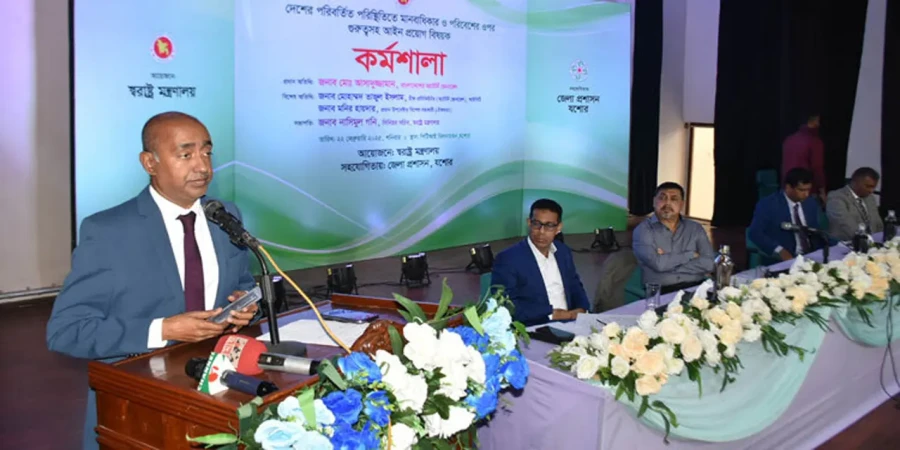
ছবি: Photo: Collected
Attorney General Mohammad Asaduzzaman emphasized that the individuals opposing the July Revolution must not be allowed to evade the law. He made these remarks during a workshop organized by the Ministry of Home Affairs on the importance of law enforcement, human rights, and the current situation in the country. The event was held on Saturday, February 22, at the PTI School Auditorium in Jessore.
Asaduzzaman stated that judges do not have absolute power when granting bail and must rely on case files for their decisions. However, he clarified that merely reviewing the files is not enough; the environmental context and circumstances surrounding each case must also be considered. He emphasized the importance of creating new footage and gathering comprehensive evidence in the legal process.
Addressing the future of the country, the Attorney General stressed that it is crucial to prevent anyone involved in opposing the July Revolution from escaping legal consequences. He urged both the legal community and the judiciary to unite in their efforts to ensure that these individuals face justice without finding loopholes in the system. He called for collective action to contribute to the rebuilding of Bangladesh, particularly in the aftermath of the July 36 movement. The aim, he stated, is to avoid any escape routes for those involved in undermining the nation’s stability.
Asaduzzaman further noted that the previous government had created a culture of impunity in the country, and it is essential for the nation to move beyond this history. He emphasized that justice must prevail in the creation of a fascism-free Bangladesh. He also called for everyone to assume responsibility in ensuring that such a political system does not resurface in the future, stressing that the youth and people of Bangladesh must unite to build a better future based on justice and equality.
The Attorney General's speech also criticized the actions of the former government, which, according to him, had led the country towards failure. He accused the previous regime of systematically dismantling the judicial system and creating a mockery of justice. He alleged that there had been severe violations of human rights, and the sovereignty of the nation had been compromised during that time. Additionally, he claimed that the police had been used as political tools, and the military had been involved in what he termed as “iron rooms” – a reference to alleged secret detention facilities. Asaduzzaman contended that foreign officials had also influenced the governance of the country during that period, leading to an erosion of national control.
The Attorney General highlighted that the citizens of Bangladesh are no longer willing to witness such conditions and must work towards ensuring that such a situation does not recur.
The workshop was chaired by Dr. Nasimul Ghani, the Senior Secretary of the Ministry of Home Affairs. Other distinguished guests at the event included Chief Prosecutor of the International Crimes Tribunal, Tajul Islam, and renowned journalist and Senior Adviser to the Chief Adviser, Monir Haider. The workshop saw the participation of senior officials from various sectors, including the Additional Secretary of the Ministry of Home Affairs, Additional Inspector General of Police (CID), the Deputy Inspector Generals of Khulna and Barisal ranges, and senior police officers from 16 districts in the Khulna and Barisal divisions, along with judges and prosecutors.
The gathering underscored the ongoing efforts by the government to ensure accountability and uphold the rule of law, particularly regarding those who had a role in the July Revolution and any opposition to its ideals.
repoter






